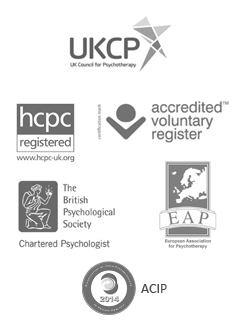Pity Following a Murder Attempt
Author’s Response
I frequently sit in the middle of the night thinking obsessively about a subject. I’m not so positive about the time, but I try to identify and comprehend my emotions in relation to my attempted suicide three or two years ago. I occasionally feel helpless and ashamed of myself when I reflect on my attempted murder. The idea that those who are aware of my attempt believe I am helpless, terrible, and self-conscious because I tried to end my life is consuming me. In other words, I’m genuinely curious as to why I experience this sinking sensation. I’m proud to say that I have a good understanding of psychology and that my feelings are out of the ordinary. I’ve made several attempts to learn more about it, but to no avail. I’m hoping you may at least identify the experience for me.
Therapist’s Response
I believe that what you are experiencing is pity, which many people in your position have experienced before. It is that sense of regret, grief, and grief that we all experience occasionally in life. Pity, regrettably, can be a very damaging feeling that may worsen rather than improve our circumstances and struggles. Shame is a feeling of guilt and unworthiness that originates from within. That, however, is just a portion of the challenges faced by those recovering from suicide attempts. Another aspect that is equally terrible is brand. The environment we live in is a source of discrimination. Society conveys the idea that what we have done is wrong or taboo and that we are flawed in some way, poor, and uncaring.
People who have considered suicidal behavior, attempted murder, or even finished it have a substantial stigma surrounding them. The communications we hear about death from the press, our friends, and even our families paint a picture of people who are struggling with death as poor, insane, flawed, or self-centered. This brand frequently has a negative impact and cannot explain facts about depression or the chemicals in our brains. The brand simply serves to increase the shame felt by those who battle depression and suicide. Even more depressive thoughts may result from this. It’s a cycle that can go on forever for some of my customers.
Although attitudes toward suicide are gradually changing for the better — we’ve seen many people speak out against the stigma of suicide when Robin Williams passed away, for example— the stigma is still pervasive enough in our culture to keep most people, especially the elderly, from discussing it. Death is a topic that many people are reluctant to discuss, which just makes it harder to comprehend and assist. We are less likely to ask for assistance and support from those who may offer it if we are hesitant to speak up for fear of how others may respond. A successful suicide prevention program works to lessen the stain connected to experiencing this way.
Consider Website Counseling: Get Matched Specifically
( Read our crucial explanation below. )
Some facets of our society are demeaning to people who have suicidal and depressive thoughts. People are frequently referred to as” committing” suicide as they would a crime or sin. This kind of speech has been employed in an effort to dissuade people from committing suicide. I recognize that while society as a whole does have good intentions with this, it just encourages people who are depressed to cover rather than seek the assistance they require. It just gets worse as a result.
The most frequent statements made by my clients who have attempted suicide or were contemplating it include” I’m weak ,”” i’ll be a burden to everyone ,” and” Oh, I must be crazy.” I’ve previously discussed these concepts in my content,” 4 Legends About Suicide.” One of the worst effects of this brand is that it makes us feel as though we need to keep our emotions hidden and fight on our own, by ourselves. Our despair just feels worse when we are by ourselves, which only makes it worse. My clients frequently claim that they didn’t discuss it because their loved ones, friends, and doctors will not comprehend. You are not alone, but I can’t guarantee that all you want to understand will( possibly because they have fallen for the stigma and negative information ). Finding people who understand is useful in recovering from a murder effort because there are many people out there who have experienced this just like you. It can be a life-changing experience whether you find them in your family, friends, cultural system, or depression support group. You can find a ton of online resources, such as Waking Up Live, What Happens Today?, and beyondblue, to help you start to comprehend what it means to restore from this. Many of us who know someone who is depressed are frequently hesitant to inquire as to whether they are considering death. But, simply asking can help lessen the stigma associated with it by letting people know it’s okay to discuss it.
Learn the Important Disclaimer carefully.
https://askthepsych.com/atp/2016/01/05/shame-after-a-suicide-attempt/
To consult a doctor, all copyrights for this content are reserved.

